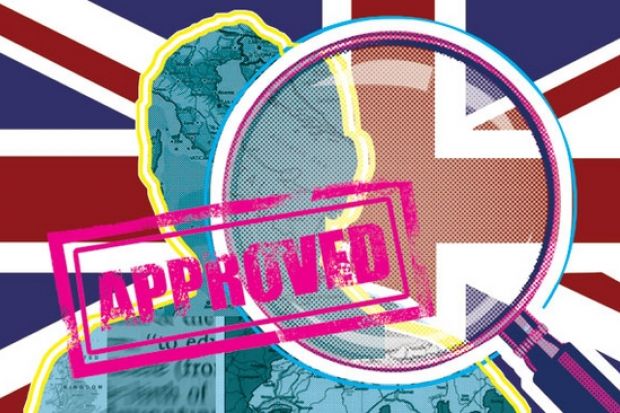I'm in central China for a series of working visits to universities: this city alone has 78. So far, I haven't been asked any questions by Chinese universities about my passport. Why would I be? Here, international visitors are welcomed with banquets.
This contrasts with the experience I had recently when examining a doctoral thesis at a world top-200 UK university. After the (successful) viva, the office processing my expenses claim suddenly asked to see my passport or a scanned certified copy of the main pages.
I don't recall ever having had to produce a passport when examining at 25 other universities. So why was it necessary here?
At first I thought it was a joke, but the university - very apologetically - informed me that it must now check my passport in accordance with UK Border Agency regulations. It seems that staff visiting British universities from another British university for examining purposes must now undergo UKBA checks.
No wonder the agency is short of staff and was in trouble recently over long queues at airports: even without the Olympics, there is clearly too much red (white and blue) tape.
Yes, my family name is Italian, and it's true that my grandfather's grandfather came to the UK from the Mediterranean and his grandfathers were diplomats for the Venetian Republic, before Italy was Italy - but we consider ourselves British. How many generations does it take to be British? No doubt I have British blood, but a fair amount is Italian, too (and Greek and Swiss). Shall I go to the genetics department to give a blood sample so someone can look into this?
Suppose I don't have a passport. Does every external examiner have to be an international traveller? The university's email explained (and it took more than 600 words) that there is an alternative: examiners can bring a full UK adoption certificate, birth certificate, naturalisation paper, immigration status document or letter from the Home Office. But none of these is sufficient on its own: all must be produced "in combination with an official document giving the person's National Insurance Number and their name issued by a Government agency or a previous employer".
Times change. Maybe we should ask who we are. After a fair amount of reading in Buddhist, Christian and Islamic philosophy about finding my true self, I am not completely unprepared for this.
"If this is not a joke", I replied, "and just a wheeze to pretend we (I provisionally count myself as part of the 'we' here) are controlling immigration, please tell me where your office is located on campus and I will be happy to present myself with a passport or other evidence that I am neither a legal nor an illegal immigrant and we can discuss existentialism while I prove that I am me."
Whatever next? A citizenship or language test? As someone with the currently contested status of "native" speaker of English, I will be able to make a courageous attempt if the test is in English. I could probably manage it in six other languages. Having four British degrees might just help, too.
In socio-linguistic studies of identity, concepts of multiple heritages and identities are now normal. So, increasingly, are "border crossings" between them; in our complex relations, we shift between identities in different contexts. Understanding this is vital for internationalising UK universities. To me, internationalisation is less a question of attracting international students and staff than of internationalising programme content, achieving international understanding and empathies and developing international cultures of learning. These requirements seem a very long way from any of this.
The university tells me it is changing its procedures so that in future, external examiners - whatever their nationality - will be asked to produce their passport (or adoption or birth certificate) during the appointment process rather than after the viva.
This means that the next time I'm invited to examine, I'll not only have to complete a form with answers to the now-fashionable questions "How many PhDs have you examined before?"; "How many doctoral theses have you supervised through to completion?"; "How many theses have you examined in 'good' universities?"; and "How many theses have you examined internationally?" (How on earth is a novice examiner supposed to break into this game?) As if this were not enough to put one off, I'll also need to produce the required documentation to satisfy the UKBA about my identity. External examiners cross borders.
Meanwhile, while I watch the Olympics on Chinese TV through international eyes, I'm wondering who checked the identities of the people who devised these regulations. Who are they? Did they ever cross borders themselves? Do they sit behind barbed-wire fences devising bureaucratic forms and language and genetics tests? And, most importantly, where are their papers?
Register to continue
Why register?
- Registration is free and only takes a moment
- Once registered, you can read 3 articles a month
- Sign up for our newsletter
Subscribe
Or subscribe for unlimited access to:
- Unlimited access to news, views, insights & reviews
- Digital editions
- Digital access to THE’s university and college rankings analysis
Already registered or a current subscriber?
